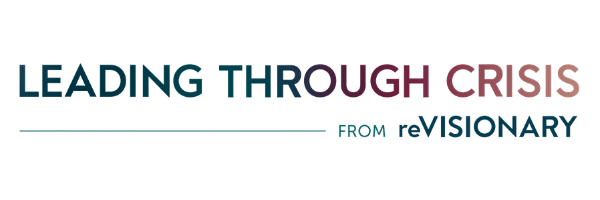Crisis Communication
Listen to this episode on Apple Podcasts or Spotify
I’ve spent a lot of time thinking about why so many of us find it difficult to accept responsibility when things go sideways. And, honestly, I’m no closer to an answer now than I was when I started this mental exploration.
Even those of us proud of our ability to take accountability and own our mistakes are not always practicing what we preach. Owning up to our contributions in a dynamic, result, or crisis is entirely situational and depends on the specific circumstances we find ourselves in. Combining that with the often misaligned perceptions we have of ourselves and the experiences others have of us can easily become a recipe for disaster.
I am certain that many complex and nuanced emotions affect our ability to accept responsibility in a given situation. Whether it’s fear, shame, guilt, hurt, or something else entirely… It’s hard enough to be accountable to and for results when we can name the emotion we’re feeling, let alone when we aren’t even able (or willing) to identify it.
When these complicated, unnamed, and misunderstood emotions arise in a crisis, you often end up with a person incapable of taking responsibility or accountability for what has transpired. Unfortunately, it then becomes much harder to resolve the situation because the reality and truth of what led to that result aren’t as clear.
I’ve spent years working with leaders and teams to navigate change and difficult situations. While crisis is sometimes part of what initiated the change, more often than not the change is well-planned, well-understood, and has a specific outcome or goal as the desired result of the change process.
However, even when the change is planned and communicated, accountability can be lacking as soon as something goes awry or there is a problem in the change process. One key aspect that differentiates the teams we work with is their commitment to ensuring people feel safe taking accountability, allowing them to navigate the messy bits that inevitably come with any type of change.
A few years ago, we worked with a team navigating a reorganization that had essentially been dictated to them by the board. Almost every leader was affected by the changes, whether in responsibility, team composition, or reporting structure, and many leaders were navigating multiple changes.
As part of the reorganization, it was identified that one of the long-time leaders wouldn’t have a role in the new world. He left about 6 months into what was a fairly slow launch of the reorganization.
Within 3 weeks of his leaving, the other leaders were astonished at how much easier navigating the change started to seem and how much faster they felt they were able to respond to what was happening around them.
During one of the monthly team debriefs, we discussed at length the newfound ease people were feeling. It became evident that the leader who left (and was the most senior leader at the time) had been so resistant to taking any accountability or responsibility – not only during the change process but before it as well – that it had affected every single person on the team who reported to him and his peers.
When he left, the leaders around him recommitted to transparency and accountability (without realizing the full impact of his behavior) and quickly reaped the benefits of this mindset shift.
Accepting responsibility and fostering accountability isn't always easy, but it's crucial for effective leadership. By understanding the emotional complexities and creating a culture where accountability is safe and encouraged, leaders can navigate even the most challenging changes.
Reflect on your own experiences – are you creating an environment where your team feels empowered to take responsibility? If not, it's never too late to start.
—
Adele Gambardella, honored as “a woman who means business,” has over 20 years of experience owning and managing her own private Top PR firm in Washington DC. She has run PR campaigns for US President Joe Biden, the CEO of Lockheed Martin Marillyn Hewson, and many more.
Adele has spearheaded major crisis PR campaigns for brands such as SAP, Verizon and Johnson & Johnson. She has also been invited to speak at the United Nations twice, where she gave 2 speeches on crisis communications.
Adele is a co-author of Convince Me: High-Stakes Negotiation Tactics to Get Results in Any Business Situation and maintains her writing chops as a contributor to the Wall Street Journal, Inc., and Entrepreneur magazines. She has taught crisis communications and business at Princeton, Cornell, George Mason, and Georgetown Universities.
An Ex-FBI hostage negotiator and special agent for 22 years, Chip Massey investigated 9/11 terrorist attacks and led the New York FBI Office’s Crisis Negotiations Team—in
all five boroughs.
As the Co-Owner of the Convincing Company, he teaches executives and their teams how to apply the FBI’s techniques to every workplace scenario. Clients include C-suite executives at Fortune 500 companies, including Facebook, Samsung, and Goldman Sachs. Chip is the co-author of Convince Me: High-Stakes Negotiation Tactics to Get Results
in Any Business Situation.
A natural communicator and teacher, Chip has trained FBI agents, police officers, and various federal officials in hostage negotiation techniques, de-escalation, and other law enforcement issues. Additionally, he has taught thousands of military personnel and civilians at West Point, Princeton, Cornell, Columbia, and other high-profile colleges.
You can learn more about them and their book at convincingcompany.com/crisis/.
Or, connect with them on LinkedIn at linkedin.com/company/convincingcompany/.
